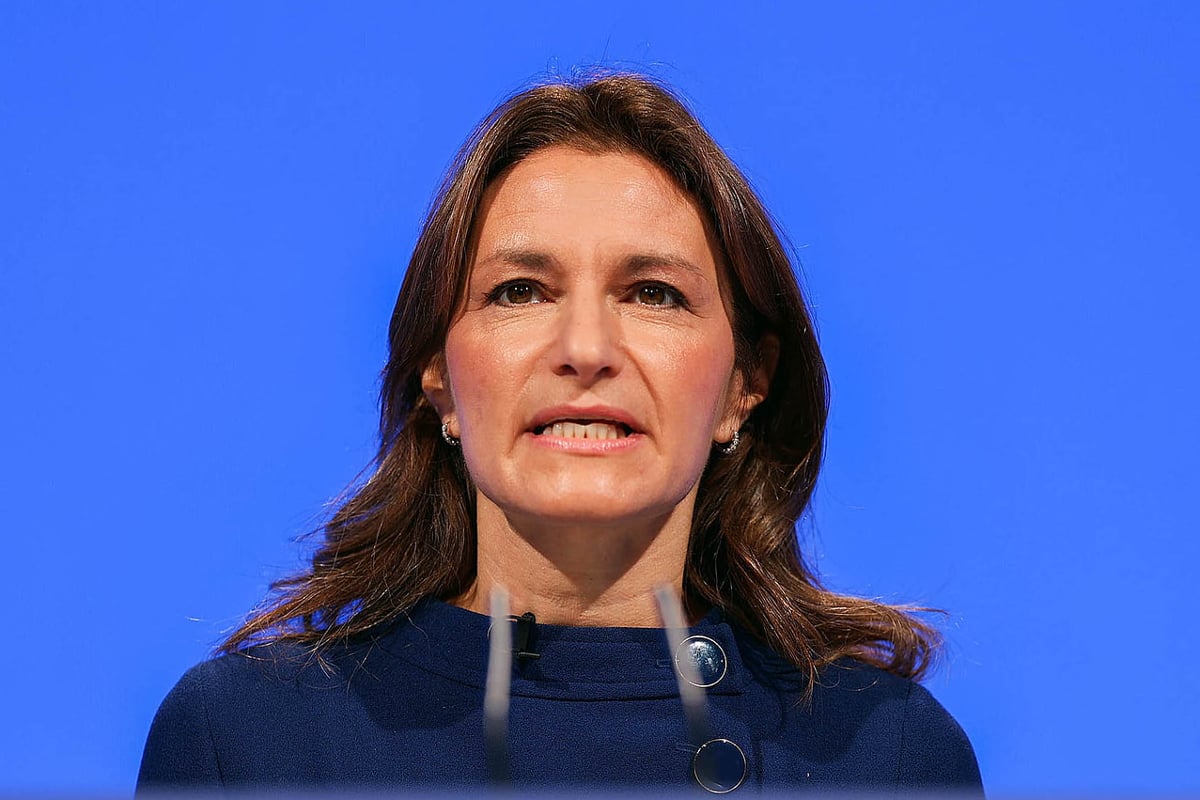
Culture Secretary Lucy Frazer
Photo: Conservative Party/Creative Commons
Frazer orders full-scale review of ACE
The decision follows completion of an initial assessment into the role and functions of Arts Council England that could have resulted in no further action being taken.
Culture Secretary Lucy Frazer has given the go-ahead for a full-scale independent review of Arts Council England (ACE) following the completion of an initial "light touch" assessment, it has emerged.
ACE has been earmarked for review in the 2023/24 financial year as part of the government's public bodies review programme. The first stage was a self-assessment process involving both ACE and the Department for Culture, Media and Sport (DCMS), evaluating several areas relating to its form and function, including whether an alternative delivery model would be suitable.
This process can result in a decision that an in-depth review is unnecessary. But speaking in parliament last Thursday (1 February), DCMS Minister Julia Lopez revealed that, having seen the assessment's findings, Culture Secretary Lucy Frazer has opted for a full review.
READ MORE:
"The review will be led by an independent Lead Reviewer, which the Public Body Reviews team are working towards appointing and announcing at the earliest possible date," Lopez said in response to a parliamentary question on the progress of the review put by Labour's Shadow Culture Secretary Thangam Debbonaire.
Lopez added that the process of securing a Lead Reviewer has "taken some time".
"The review time frame is subject to many influences including Lead Reviewer availability, availability of stakeholders from which to gather evidence, complexity of subject matter… and so providing timeframes for them is unhelpful."
The findings of the initial assessment have not been released. According to the Institute for Government, once completed, the self-assessment is submitted to the relevant departmental Minister, sometimes accompanied by minor recommendations.
The Minister then decides whether to implement the recommendations of the self-assessment. They may also request a full-scale review even if the self-assessment does not recommend it.
'State-run arts country'
News of the review coincides with concerns about the current relationship between government and Arts Council England, highlighted during a debate on the value of arts in the House of Lords last Thursday (1 February).
Labour peer and culture broadcaster Melvyn Bragg cited ACE as an example of a cultural institution that has "become an accessory" to the sector's deterioration due to government interference.
"The Arts Council… has been of the greatest value for the arts, especially its arm’s-length management," he said.
"Yet in November 2022, English National Opera was given 24 hours’ notice by Arts Council England that all current funding would be withdrawn and the company removed from the National Portfolio by April 2023.
"The way in which this was done disgraced the government. Nadine Dorries, the [then] Culture Secretary, 'instructed' in a short letter – she used the word several times – Nicholas Serota, Chairman of the Arts Council, to do as the government, that is, Nadine Dorries, dictated.
"We had become, it seemed, a state-run arts country, one step away from the dictatorship of the state on the agenda."
Speaking during the same debate, Liberal Democrat peer Lady Bonham-Carter said the Arts Council was established in 1948 to protect the independence of artists and arts organisations "at all costs".
"As Lord Bragg so forcefully explained this arms-length principle was destroyed by this government when ACE was issued a directive by a recent Secretary of State to redistribute funding from London to the regions, as a part of the government’s agenda for levelling up," she said.
However, Bragg's fellow Labour peer, Lord Murphy, said he wanted government to step in to "save opera" in the country before the end of ACE's current National Portfolio.
"I ask for this crisis to be dealt with directly and not left in the hands of Arts Council England, which is not doing opera any good at all," he said.
Structural questions
In response, Arts Minister Lord Parkinson indicated the areas the review will focus on, typically published as terms of reference when it is officially announced.
"Our forthcoming review of the Arts Council allows us to ask some important structural questions about how it makes its decisions and sets its strategy, how it measures them and the timeframes by which government asks it to do it," he said.
He added that he agreed with Lady Bonham-Carter on the importance of the arm’s-length principle and that "ministers should not decide who gets what, no matter how deserving".
"That unenviable job is done by the Arts Council, which does the micro while the government do the macro," he said.
"I have acknowledged before that the instruction that we gave the Arts Council before the last funding round, to ensure that its funding was more equitably spread around the country, made its job harder and presented it with some invidious choices.
"However, I am proud that it has resulted in a record number of organisations being funded in more parts of the country than ever before."
Join the Discussion
You must be logged in to post a comment.